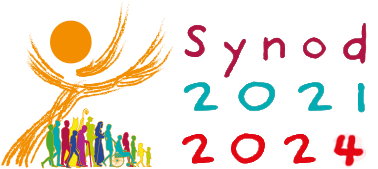
The members of Study Group 2 are four women and three men, including religious, laity and clergy who come from five continents and work in six continents. Our diversity is a deliberate strategy that has enabled Study Group 2 to reach into many networks and gather insights from lived experience and engagement in a variety of local Churches. Since July 2024 we have met nineteen times via Zoom.
Upon receiving the news of Pope Francis’ death, we resolved to continue our work in order to be able to submit our report by 30 June should that be desired by the new Pope. We welcome Pope Leo XIV’s encouragement of synodality. The extension of the reporting deadline will enable us to deepen the circularity of our methodology.
Subgroups
We have received reports from our Disability Subgroup and Theology Subgroup. These included concrete proposals that have been reviewed by Study Group 2. Following dialogue with the Subgroups and some amendments, these proposals have been incorporated into the recommendations of our draft report.
Additional Data
In July 2024 we gathered data from Bishops, theologians and formators, Church ministries and organisations via surveys. Following Cardinal Grech’s invitation for submissions to the Study Groups in October 2024, we have received twenty-one written submissions which are being considered as our draft report is finalised.
Our member Professor Sr Maria Cimperman has worked with International Union of Superiors General (UISG) and received over two hundred submissions from women’s religious institutes concerning the vital question of formation and the cries of the poor and of the earth.
Our members continue to take up opportunities to listen to the lived experience of those made poor or marginalised. For example, Coordinator Dr Sandie Cornish accepted the invitation to participate in the Idol Talk: In the Image of the Disabled God conference co-hosted by the Institute for Religion and Critical Inquiry and the Society of Jesus’ Loyola Institute as an intentional listener and critical friend. The conference was developed in dialogue with the Disability Office of the Australian Catholic Bishops Conference and brought together people with disability in Australia, academics internationally, and Dr Vittorio Scelzo representing the Dicastery for Laity, Family and Life, to consider the Catholic Church’s understanding of disability and the participation of people with disability in the Church.
Drafting
Study Group 2 has been working intensively on drafting its report and will have a complete first draft by the established time. Different members of the Group have led the drafting of different sections and the whole Group has diligently engaged with the drafts offering comments and suggestions.
Our report’s Executive Summary will include a brief introduction to each section and a full listing of the recommendations in relation to each of the five questions entrusted to us. The reflection on good practices that gave rise to the recommendations will be contained in appendices. A detailed proposal for an International Ecclesial Observatory on Disability in pursuance of No. 63 of the Final Document of the 16th Ordinary General Assembly of the Synod of Bishops on Synodality will be included as an appendix. The final report will include internal hyperlinks for easy access to relevant appendices.
Testing Recommendations
The extension of the reporting deadline will enable us to implement a feedback loop which was part of our originally proposed methodology but which we would not have been able to complete by 30 June 2025. We are now planning to test our draft recommendations on the ground in each continent.
Each Study Group Member will endeavour to engage with people or communities made poor or marginalised in their continent of origin, or where they live. They will do this either directly or via contacts who have authentic, ongoing relationships of trust with these communities. Similarly, efforts will be made to gather feedback from some parishes, seminaries, theologians, and providers of formation, as well as from ecclesial networks, social movements and those working to protect our common home. All Bishops with designated responsibility for justice, ecology and peace for their Bishops Conference will be invited to provide feedback.
Study Group 2 lacks a member from the Middle East. We will seek assistance and advice from those who participated in the Synod Assembly from the Middle East on appropriate ways of soliciting feedback in that region.
We are currently preparing to translate our draft recommendations and begin consultation seeking feedback on them. The timeline for this consultation will be determined in the coming weeks. After considering feedback we will finalise our report.
Coordinator: Dr Sandie Cornish

